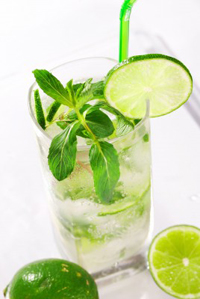Alcohol Binge Drinking During Early Pregnancy Increases the Risk for Cleft Lip and/or Palate

A Norwegian investigation, reported in the American Journal of Epidemiology (July 30, 2008), has shown that female subjects who binge-drank during their early pregnancy were at significant risk of having babies with cleft lip and/or cleft palate. The incidence of cleft lip and/or cleft palate for Norway is among the uppermost in Europe. Binge drinking is described as consuming 5 or more alcoholic beverages at one time. Investigators from the National Institute of Environmental Health Sciences performed this study. They compared 573 mothers of cleft lip and/or cleft palate infants with the control group (n = 763 mothers). Another group was randomly chosen from all-live births that occurred in Norway from 1996 to 2002.
Female subjects in this study who binge-drank one or more times during their first trimester of pregnancy (i.e., 13 weeks), were twice as likely to have babies born with cleft lip and/or cleft palate, when compared to those female subjects that did not binge-drink. If the subjects binge-drank more than twice, they were three times as likely to have babies born with cleft lip and/or cleft palate, when compared with the control group (no binge-drinking). It was concluded that drinking a lot of alcohol in one sitting, significantly increased the rate of cleft lip and/or cleft palate. This did not happen in women who drank more frequently, but less amounts at one sitting. From this study at seemed, that the higher the blood alcohol concentration, the longer the foetus was exposed to the alcohol and its metabolites. Also, one day or night of binge-drinking during the critical trimester of the foetus’ development could be detrimental.
These same investigators recently found that smoking during the first trimester, also significantly increased the incidence in cleft lip and/or cleft palate. The lip and palate are developed during the first 5-7 weeks of pregnancy, so this is when the injury usually occurs. Additional probable causes of cleft lip and/or cleft palate include; folic acid deficiency, infections, smoking, certain illicit drugs, and medications (i.e., anti-seizure drugs). Oral and maxillofacial surgery usually can correct these clefts.











